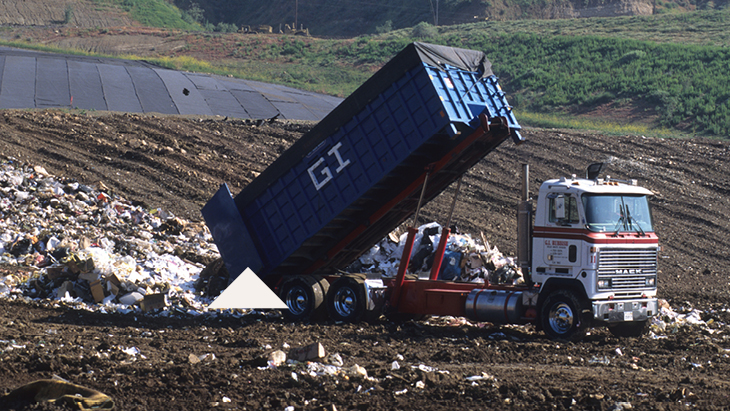Everyone has a part to play in tackling plastic pollution
5 min read | Paul Gosling | Article | Career development | Industry insights

Every minute of every day, a lorry worth of plastic enters the ocean. This has a disastrous effect on marine life. Not only does the plastic debris entangle and injure marine species, but, when plastic is broken down by waves and sunlight, the toxic microplastics produced are easily ingested. An estimated 100,000 marine mammals are killed by plastic ingestion or entanglement each year. Given our nation’s appetite for a fish dinner, evidence suggests that we could be ingesting those microplastics, too. But the repercussions of plastic pollution don’t stop there.
Our ‘throwaway culture’ is unsustainable
We manufacture 430 million tons of plastic a year and production is set to triple by 2060 if things continue in the same vein – it’s evident that society’s relationship with plastic needs to change. While plastic has unquestionable benefits not least in the healthcare system, where single-use syringes, catheters and surgical gloves can prevent the spread of infectious diseases, we need to reduce our reliance on non-essential plastic products.
We still live in a ‘throwaway society’: UK households throw out nearly 100 billion pieces of plastic packaging every year and only 12% of this waste is recycled in the UK, according to results from The Big Plastic Count. The rest is either put into landfill sites, burned in waste incinerators or exported to other countries.
Did you know that plastic bags, water bottles and single-use coffee cups can take anywhere from 20 to 500 years to decompose in landfill sites? Plastic waste that ends up in landfill releases toxic chemicals as it breaks down and the resulting microplastics can make their way into our soil, our water supplies, our food chain and our bodies.
Transforming the plastic economy
Tackling plastic pollution at its core requires a life cycle assessment that addresses every stage, from product design and production to consumption and waste management. By 2040, it’s estimated that a transformed plastic economy could create 700,000 additional jobs and reduce plastic pollution by 80%. But we need specialists from all industries to work together to achieve this, including scientists, engineers, designers, supply chain specialists, marketers and policy makers.
- Product design: scientists are developing and discovering more sustainable polymers that can be used in packaging, such as polylactic acid (PLA) made from corn starch or sugar cane.
- Manufacturing: engineers are working on ways to reuse plastic that is produced during manufacturing processes, including using it in 3D printing.
- Consumption: councils and governing bodies have a responsibility to encourage sustainable consumer behaviour and support businesses in their efforts to tackle plastic pollution.
- Waste management: civil engineers play a key role in building effective and sustainable recycling and incineration facilities.
We all have a part to play in tackling plastic pollution
Shocking statistics about plastic pollution can trigger feelings of worry, stress and helplessness for many individuals. However, there are simple steps that we can all take, no matter what industry we work in, to reduce plastic waste in our homes, our workplaces and our communities.
- Avoid unnecessary food packaging in supermarkets and grocery stores wherever possible. Not only does this reduce the plastic waste from your weekly shop, but it’s also better value for money since loose fruit and vegetables are often cheaper than pre-packaged alternatives.
- Reduce your reliance on single-use plastics. Small changes to your daily habits, like remembering to pack a reusable water bottle and coffee cup in your work bag or bringing your own bags for shopping trips, can make a big difference to your annual plastic consumption. Apps, like Refill, can help you locate nearby water refill stations and show you where to get discounts and rewards for bringing your own coffee cup.
- Volunteer with local plastic clean-up groups in your area. The Million Mile Clean, run by Surfers Against Sewage, is an example of an initiative you can get involved with to tackle plastic pollution in your local community.
Interested in tackling important environmental issues like plastic pollution in your next role? Speak to one of our expert consultants to find out where a career in sustainability could take you. Or if your organisation is looking to source top talent for your upcoming sustainability projects, register a job with us today.
About this author
Paul Gosling, National Director for Sustainability Recruitment, Hays
Paul has been a specialist recruiter in environment and sustainability for over 25 years. He started recruiting into the sector in 1995 after finishing his BSc in Environmental Science and he’s worked with thousands of individuals and hundreds of companies over the past 20-plus years to support their growth and development in this dynamic and critically important sector.
During this time, Paul has built a wealth of knowledge and he’s recognised as a leading expert on overcoming the unique recruitment challenges facing the environment and sustainability sector.